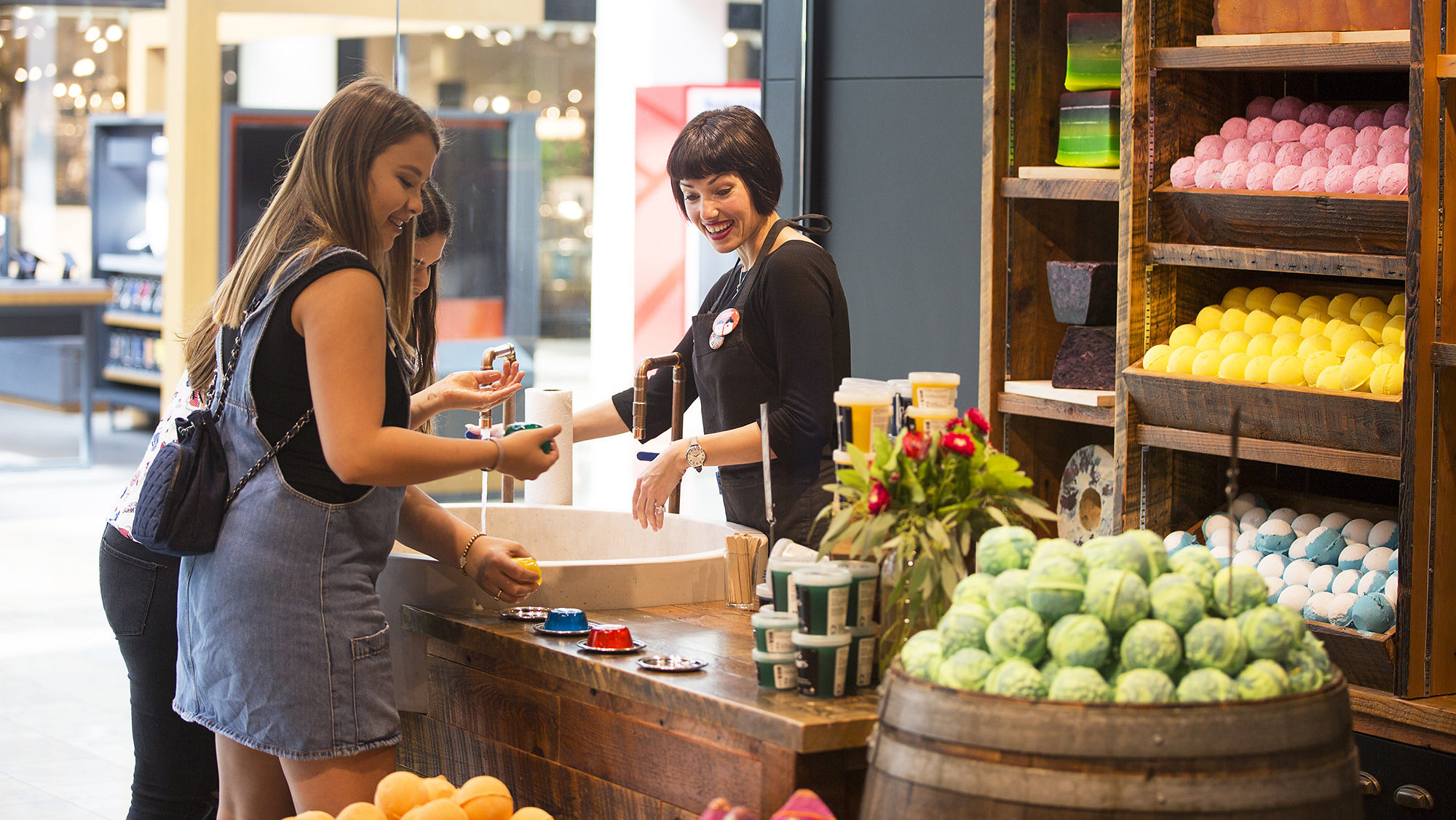This cosmetics company has laid some non-carbon footprints worth following.
When you walk into any of the 931 Lush stores spread across 49 countries, you’re immediately tantalized by colors and flavors you can only imagine before you’ve tried them with names like Moroccan Argan, Ugandan Moringa and Indonesian Illipe.
These ingredients are mixed together with the hand-crafted assurance that everything is fresh and cruelty-free. In fact, Lush enlists an entire ethical buying team to strategically source its materials from around the globe.
“It’s all about transparency to me,” says Lush’s Ethical Buying Manager, Heather Deeth. “We want to know all the people and faces connected to each ingredient.” Supply chain transparency is nothing new to the company. For years they’ve been cultivating a lasting relationship with growers around the world, to ensure their ethical standard is maintained from seed to shelf.

Since 2010 Lush has implemented the Sustainable Lush Fund, dedicated to investing in sustainable farming and projects that rejuvenate the land so as to support global communities from the ground up and establish lasting business partnerships that will guarantee quality ingredients for all of Lush’s products. “The power of ethical buying is that you get to connect all the way back to these producers and see what’s really happening to them,” Heather explains. “We’re connected to the land and where these things come from.”
Lush’s current agricultural investments include farms in Arizona, Guatemala, Peru, and Uganda. The Fund supports fair wages and working conditions for growers, as well as the development of sustainable farming practices by challenging the methods—and profits—of traditional agriculture.
“We had to provide an economic alternative to chopping down the trees,” Heather says, “and find a way to value the forest as it is.”
Partnerships with these growers insures a steady income for those who might otherwise be forced to turn to monoculture as a means of survival. This is a sustainable alternative to the profits from palm plantations and cattle pastures that decimate local ecosystems by clearing forest land for crops and livestock that quickly deplete the nutrients from the soil. Conventional monoculture may be more profitable in the short term, but Lush is striving to provide a more stable, long-term alternative, for growers and the land they harvest.

Since 2014, Lush has promoted regenerative farming among its agricultural projects, a system that rejuvenates degraded land while simultaneously producing ingredients for their products. This method of farming transforms formerly fallow fields into diverse agroforestry systems, a process that steps away from monoculture by growing trees and multiple crops on the same pastureland. By combining agriculture and forestry into a lush garden of plenty, numerous crops can be grown at the same time, creating a richer, healthier, and more diverse ecosystem (and providing farmers with the added benefit of growing food for their families while also growing crops for profit). Instead of working against nature by clearing land, the reforestation aspect allows forest ecosystems to thrive, more resilient than before because the combination of crops generates a microclimate regulated by the trees, which improve water purity, soil fertility, and shelter for both flora and fauna.
Through this system, Heather explains, “We can provide good jobs that are in line with sustainability. We need these projects to go deeper than charity. We actually want to be a long term partner so we can regenerate the land and buy ingredients.”
By investing in its supply chain, Lush sets out to prove that working with nature instead of against it is the key to long-term success. Lush is a company in a special position because it relies directly on the health of the planet in order to flourish.
“The environmental aspect is also very important,” Heather emphasizes, “Because many of our ingredients are natural and come from the earth at some point. We want to limit our footprint.”
Lush has done this from the beginning, leaving a trail of non-carbon footprints worth following. They’ve worked towards locally sourcing post-consumer products to reduce emissions associated with shipping packaging materials. They run a closed loop recycling system with their black pots. They’ve even recently begun harvesting salvageable ocean plastic and using that as a percentage of their packaging.
And Lush has gone even beyond recycling. 50% of Lush’s product range is naked, which means it’s completely packaging free, a sustainability choice that not only supports the movement to reduce waste, but saves on packaging costs. “When you are clever and you can formulate without packaging,” Heather says, “you can put more value into the ingredients you’re sourcing. It means I can buy the best ingredients I can get, and we can put more value into supporting ecosystems and supporting farmers around the world. We can prove that businesses can be sustainable.”




































